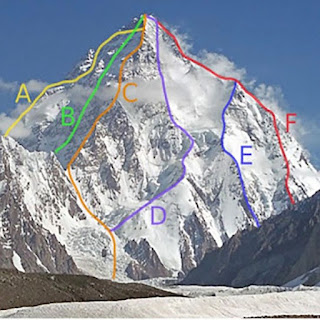Responses to Religious Diversity

Different people respond to religious diversity (the existence of other religions) in different ways: The religious exclusivist holds that only their own religion is true. The religious inclusivist holds that while other religions may be partly true, only the religion of the inclusivist is the most true. The religious pluralist accepts the presence of all religions while remaining personally committed to their own religion. Basically: "live and let live". The religious universalist holds that no matter what religion one follows, all will ultimately lead to salvation. The religious syncretist personally embraces multiple religions, often combining elements from two or more, essentially creating their own personal spiritual path. I am getting a metaphoric image in my mind of how these paths relate to and differ from each other: Imagine a mountain that all are climbing, trying to reach the top (the goal of religion, God or salvation, if you want). · ...